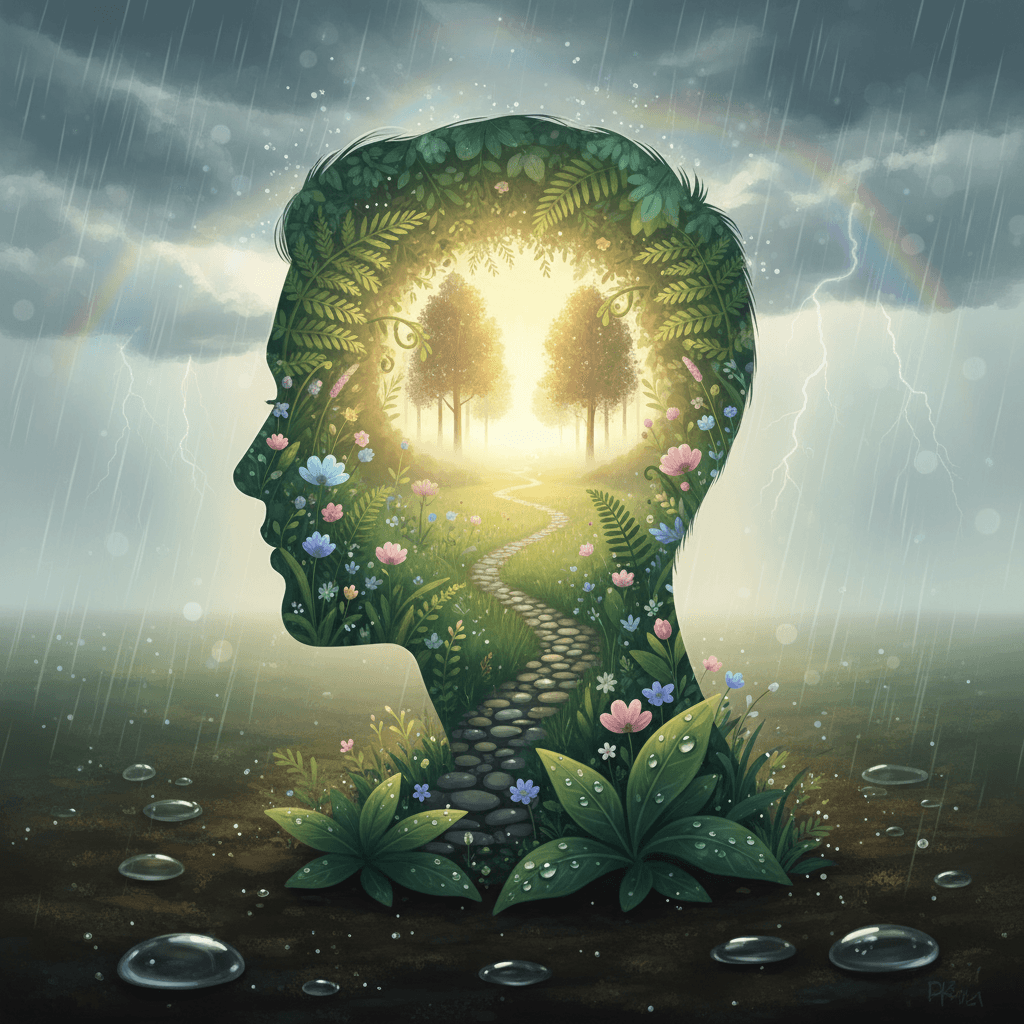Tend the Inner Garden; Weather Life’s Storms

Tend your inner garden and storms will pass over fertile ground. — Confucius
Inner Cultivation as First Principle
At first glance, the line attributed to Confucius distills an ancient credo: care for the inner life so adversity becomes nourishment, not ruin. By casting character as a garden, it implies patient, seasonal work; by calling hardship a storm, it admits weather we cannot command. Preparation, not prediction, becomes the wise response. Though the phrasing is modern, it embodies the Confucian program of self‑cultivation, xiushen. Before addressing families, offices, or states, one steadies the heart‑mind so that outer tempests meet rooted integrity rather than bare soil.
Gardens, Storms, and the Ecology of Character
Carried forward, the metaphor clarifies the mechanics of resilience. Soil is our habitual attention; seeds are values; weeds are resentments that spread if ignored. Storms can break branches, yet they also bring rain, and even lightning’s nitrogen feeds future growth. Likewise, blows of fate can irrigate depth when they fall upon prepared ground. The point is not to romanticize suffering, but to recognize agency in the tending. What we practice daily becomes the trellis that guides wild experience into fruit instead of tangles.
Confucian Roots of Self-Cultivation
In the Confucian canon, The Great Learning (Daxue) teaches the cascading sequence cultivate the self, regulate the family, govern the state, bring peace to the world. The Analects portrays ren, humaneness, and li, ritual propriety, as the tools of cultivation that keep the garden orderly amid change. Mencius (4th c. BCE) adds his famous sprouts of virtue, urging protection of inborn goodness until it matures. Consequently, resilience is framed less as stoic hardening than as moral ripening: storms test, reveal, and ultimately strengthen well‑rooted virtues.
Resonant Parallels Beyond China
Moving outward, other traditions echo this horticulture of the self. Epictetus’s Enchiridion teaches to focus on what is up to us, much like watering one’s plot rather than cursing the weather. The Buddha’s Satipatthana discourse models mindfulness as steady weeding of reactivity. Marcus Aurelius’s Meditations reads like a gardener’s logbook of daily pruning. Such parallels do not erase differences; rather, they show a convergent wisdom: resilience grows from disciplined interiors, not from calmer skies.
Psychology of Resilience and Growth
Turning to contemporary research, Tedeschi and Calhoun’s work on post‑traumatic growth (1996) documents how, with support and meaning‑making, some people emerge from storms with deeper appreciation and strengthened priorities. Barbara Fredrickson’s broaden‑and‑build theory (1998) shows how positive emotions widen attention, helping us notice resources the way light after rain reveals new shoots. Jon Kabat‑Zinn’s MBSR program (1979) demonstrates that mindfulness practices measurably reduce stress reactivity. Taken together, the data align with the proverb’s claim: practices prepare the soil so hardship can, at times, catalyze growth.
Practices for Tending the Inner Plot
Practically, tending means small, rhythmic acts. Weeding: limit corrosive inputs and unlearn reflexes like rumination. Watering: sleep, movement, and nourishing food that keep attention rich. Pruning: say no to misaligned commitments so core values receive light. Companion planting: pair habits, such as gratitude after meals. Composting: turn mistakes into learning through reflective journaling. Because seasons change, routines should, too. During calm periods, build roots; during storms, shelter and simplify; after, replant with lessons in mind.
From Personal Soil to Shared Harvest
Next, the garden widens to community. Confucian li turns inner virtue outward through courteous acts, shared rituals, and reliable roles, which in turn buffer collective stress. Mutual aid networks and wise institutions function like windbreaks and irrigation, distributing pressure so no single plot is stripped bare. The Great Learning’s sequence suggests a feedback loop: cultivated persons steady families; steady families sustain fair governance; just structures then protect the conditions for further cultivation.
Harvest After Weathered Skies
In the end, storms still come, and some devastate. Yet even then, meaning can be harvested: a clarified purpose, gratitude for companions who stood as windbreaks, or humility before nature’s scale. As farmers walk fields after a gale to note damage and save what can be saved, reflection converts shock into next season’s plan. Thus the saying is not naïve optimism but disciplined hope. Tend the inner garden now, and whatever the weather, you will meet it with fertile ground.